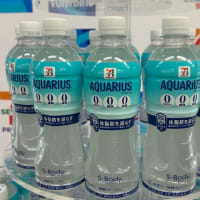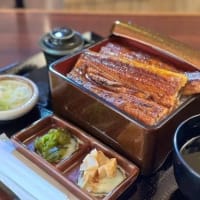FRIDAY, Nov. 21 (HealthDay News) -- Belgian researchers have discovered that some cancer cells use lactic acid instead of sugar for food, and this might lead to new treatments that starve and kill these cells.
To survive and proliferate, all cells in the body need to produce energy. They do this by burning sugar [glucose], a process that requires oxygen. Compared with normal cells, tumor cells have restricted access to oxygen. Some tumor cells become starved for oxygen [hypoxic] and produce lactic acid. Until now, it was believed that both types of tumor cells used glucose as their main fuel, the study authors said.
"Using models of tumor cells, we found that well-oxygenated cells use lactate [lactic acid] as a preferential substrate to produce energy," said lead researcher Pierre Sonveaux, an associate professor at the University of Louvain Medical School in Brussels.
In other words, when these oxygenated cells choose between glucose and lactic acid, they choose lactic acid, Sonveaux explained. "The well-oxygenated cells thus recycle the waste product of hypoxic cells," he said.
The researchers identified the gate through which lactic acid enters oxygenated cells -- a transporter protein called MCT1 (monocarboxylate transporter 1). "The same transporter is present in the muscle where it helps to clear lactate to prevent cramps," Sonveaux said.
Tumors are famous for co-opting normal body functions, Sonveaux said. "What we identified is thus another example of usurpation by tumor cells of a normal system diverted to promote tumor growth," he said.
In experiments with mice with tumors, Sonveaux's group used a drug to block MCT1, preventing the oxygenated cells from using lactic acid as an energy source. These cells survived by switching to glucose, and they also stopped using oxygen.
This resulted in the death of hypoxic tumor cells. "Oxygenated cells close to blood vessels used glucose so abundantly that the hypoxic cells far from the blood vessels died from glucose starvation," Sonveaux said.
Sonveaux noted that hypoxic cells are particularly resistant to all forms of anticancer therapies, including chemotherapy and radiotherapy. But after blocking MCT1, radiation killed most of the cancerous cells, he said.
The findings were published in the current issue of The Journal of Clinical Investigation.
Tumor cells cooperate to produce energy, Sonveaux said. "This cooperation can be corrupted therapeutically to destroy the most hard-to-kill cancer cells. This approach is unique and has the potential to cure cancer in combination with radiotherapy. It has also the potential to be applicable to a wide range of human tumors, after the development of a drug compatible with human use," he said.
Drugs that block MCT1 are in development, but clinical trials using this approach are at least several years away, Sonveaux said.
Dr. Margaret K. Offermann, the American Cancer Society's deputy national vice president for research, thinks this finding could lead to new strategies in treating cancer.
"This study explains differences between several types of cancer cells that could potentially be exploited to enhance treatment," Offermann said. "How effective it's going to be is hard to know," she said.
一部の癌(がん)細胞は栄養源として糖ではなく乳酸を優先的に利用しており、この知見が癌の新しい治療法につながる可能性があることをベルギーの研究グループが突き止めた。
細胞が糖(ブドウ糖)を燃焼させてエネルギーを作り出すプロセスには酸素が必要だが、腫瘍細胞の中には酸素が十分に供給されないものがあり(低酸素細胞、hypoxic cell)、この細胞が乳酸を産生する。研究を率いたLouvain大学医学部(ブリュッセル)のPierre Sonveaux氏によると、これまで癌細胞はブドウ糖を主な栄養源としていると考えられていたが、十分に酸素を供給されている細胞(酸素化細胞、oxygenated cell)は、乳酸を優先的に用いることによって低酸素細胞が作り出す老廃物を再利用しているのだという。
研究グループは、乳酸が酸素化細胞に入り込むためのゲートが、MTC1(モノカルボン酸輸送体1)と呼ばれる輸送蛋白(たんぱく)であることを突き止めた。同じ輸送蛋白は、筋肉内で乳酸がけいれんを起こすのを防いでいる。腫瘍が正常細胞の働きを勝手に真似るのはよくあることで、今回わかったのも、そういった正常細胞の機能を強奪して腫瘍細胞の成長に役立てている例の一つだという。
腫瘍を発生させたマウスを用いて、MTC1を阻害する薬剤により酸素化細胞が乳酸を利用するのを妨害すると、酸素化細胞はブドウ糖を利用するようになり、その結果、低酸素細胞がブドウ糖の不足によって死滅したという。このように腫瘍細胞の協調を乱すことにより、死滅させることの難しい癌細胞を破壊できる可能性があるとSonveaux氏は述べている。低酸素細胞は化学療法、放射線療法などあらゆる抗癌治療に特に耐性が強いが、MTC1を阻害したあとは、放射線療法でほとんどの癌細胞が死滅したという。この知見は、米医学誌「Journal of Clinical Investigation(臨床試験)」オンライン版に11月20日掲載された。
MCT1を阻害する薬剤は現在開発段階にあるが、臨床試験の実施は少なくとも数年先になるだろうとSonveaux氏はいう。米国癌協会(ACS)のMargaret K. Offermann博士は、この知見が癌治療の新たな戦略となる可能性はあるが、「どのくらい有効なものとなるかは、まだわからない」としている。
頑張っていただきたい。
すべてのガンに効く、特効薬を…
To survive and proliferate, all cells in the body need to produce energy. They do this by burning sugar [glucose], a process that requires oxygen. Compared with normal cells, tumor cells have restricted access to oxygen. Some tumor cells become starved for oxygen [hypoxic] and produce lactic acid. Until now, it was believed that both types of tumor cells used glucose as their main fuel, the study authors said.
"Using models of tumor cells, we found that well-oxygenated cells use lactate [lactic acid] as a preferential substrate to produce energy," said lead researcher Pierre Sonveaux, an associate professor at the University of Louvain Medical School in Brussels.
In other words, when these oxygenated cells choose between glucose and lactic acid, they choose lactic acid, Sonveaux explained. "The well-oxygenated cells thus recycle the waste product of hypoxic cells," he said.
The researchers identified the gate through which lactic acid enters oxygenated cells -- a transporter protein called MCT1 (monocarboxylate transporter 1). "The same transporter is present in the muscle where it helps to clear lactate to prevent cramps," Sonveaux said.
Tumors are famous for co-opting normal body functions, Sonveaux said. "What we identified is thus another example of usurpation by tumor cells of a normal system diverted to promote tumor growth," he said.
In experiments with mice with tumors, Sonveaux's group used a drug to block MCT1, preventing the oxygenated cells from using lactic acid as an energy source. These cells survived by switching to glucose, and they also stopped using oxygen.
This resulted in the death of hypoxic tumor cells. "Oxygenated cells close to blood vessels used glucose so abundantly that the hypoxic cells far from the blood vessels died from glucose starvation," Sonveaux said.
Sonveaux noted that hypoxic cells are particularly resistant to all forms of anticancer therapies, including chemotherapy and radiotherapy. But after blocking MCT1, radiation killed most of the cancerous cells, he said.
The findings were published in the current issue of The Journal of Clinical Investigation.
Tumor cells cooperate to produce energy, Sonveaux said. "This cooperation can be corrupted therapeutically to destroy the most hard-to-kill cancer cells. This approach is unique and has the potential to cure cancer in combination with radiotherapy. It has also the potential to be applicable to a wide range of human tumors, after the development of a drug compatible with human use," he said.
Drugs that block MCT1 are in development, but clinical trials using this approach are at least several years away, Sonveaux said.
Dr. Margaret K. Offermann, the American Cancer Society's deputy national vice president for research, thinks this finding could lead to new strategies in treating cancer.
"This study explains differences between several types of cancer cells that could potentially be exploited to enhance treatment," Offermann said. "How effective it's going to be is hard to know," she said.
一部の癌(がん)細胞は栄養源として糖ではなく乳酸を優先的に利用しており、この知見が癌の新しい治療法につながる可能性があることをベルギーの研究グループが突き止めた。
細胞が糖(ブドウ糖)を燃焼させてエネルギーを作り出すプロセスには酸素が必要だが、腫瘍細胞の中には酸素が十分に供給されないものがあり(低酸素細胞、hypoxic cell)、この細胞が乳酸を産生する。研究を率いたLouvain大学医学部(ブリュッセル)のPierre Sonveaux氏によると、これまで癌細胞はブドウ糖を主な栄養源としていると考えられていたが、十分に酸素を供給されている細胞(酸素化細胞、oxygenated cell)は、乳酸を優先的に用いることによって低酸素細胞が作り出す老廃物を再利用しているのだという。
研究グループは、乳酸が酸素化細胞に入り込むためのゲートが、MTC1(モノカルボン酸輸送体1)と呼ばれる輸送蛋白(たんぱく)であることを突き止めた。同じ輸送蛋白は、筋肉内で乳酸がけいれんを起こすのを防いでいる。腫瘍が正常細胞の働きを勝手に真似るのはよくあることで、今回わかったのも、そういった正常細胞の機能を強奪して腫瘍細胞の成長に役立てている例の一つだという。
腫瘍を発生させたマウスを用いて、MTC1を阻害する薬剤により酸素化細胞が乳酸を利用するのを妨害すると、酸素化細胞はブドウ糖を利用するようになり、その結果、低酸素細胞がブドウ糖の不足によって死滅したという。このように腫瘍細胞の協調を乱すことにより、死滅させることの難しい癌細胞を破壊できる可能性があるとSonveaux氏は述べている。低酸素細胞は化学療法、放射線療法などあらゆる抗癌治療に特に耐性が強いが、MTC1を阻害したあとは、放射線療法でほとんどの癌細胞が死滅したという。この知見は、米医学誌「Journal of Clinical Investigation(臨床試験)」オンライン版に11月20日掲載された。
MCT1を阻害する薬剤は現在開発段階にあるが、臨床試験の実施は少なくとも数年先になるだろうとSonveaux氏はいう。米国癌協会(ACS)のMargaret K. Offermann博士は、この知見が癌治療の新たな戦略となる可能性はあるが、「どのくらい有効なものとなるかは、まだわからない」としている。
頑張っていただきたい。
すべてのガンに効く、特効薬を…



















